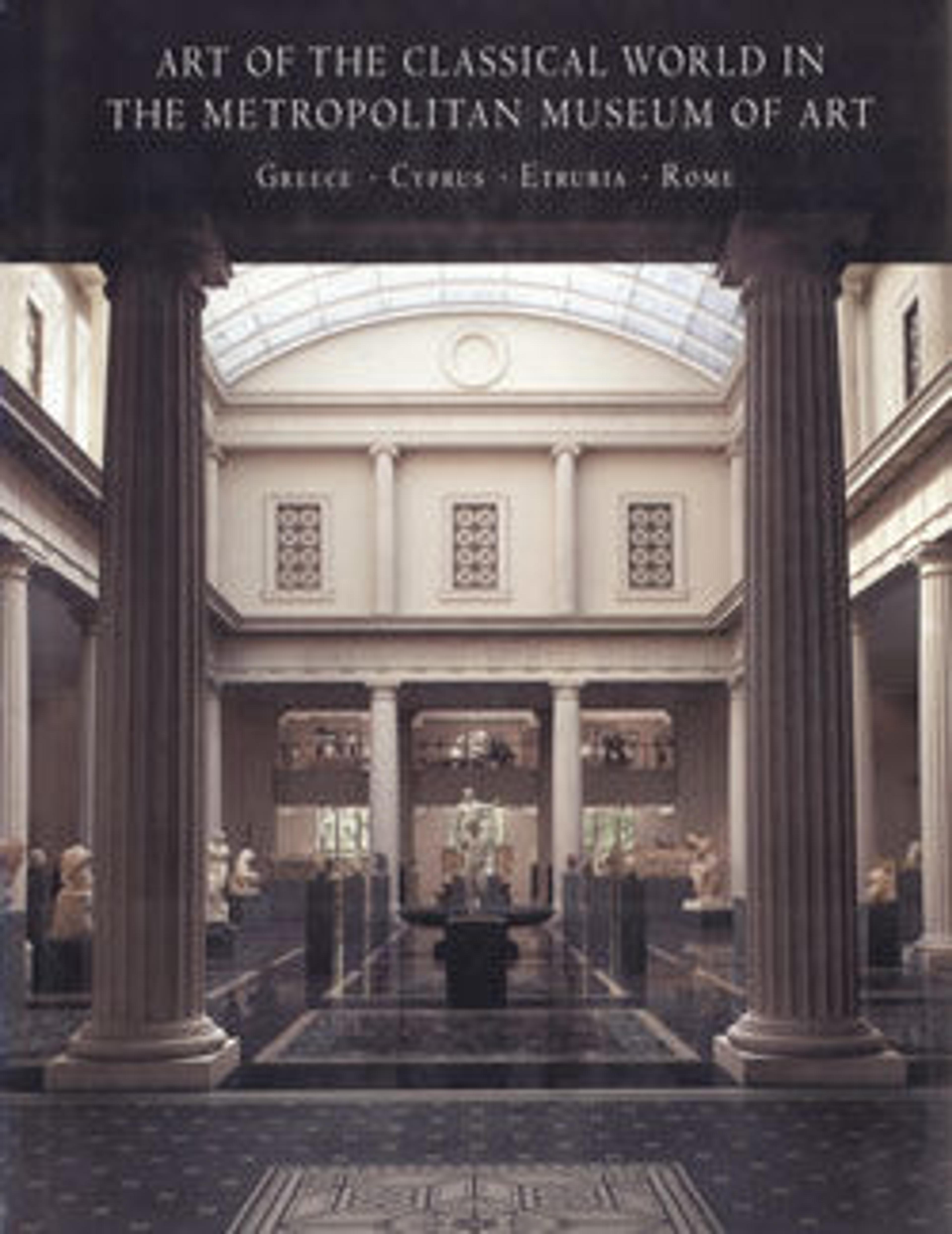Terracotta rhyton (vase for libations or drinking)
The molded part is in the form of a cow's head. On the wheel-made lip, women and youths.
The molded, figural part of the vase is in the shape of a cow's head. The meaning of these plastic vases is difficult to grasp. To some degree, the animal forms hark back to the prototypes that came to Greece from the East. By the classical period, however, the criteria for selection probably included novelty and, it would seem, a contrast to the usual surroundings of an urban, Athenian symposiast (participant in a drinking party).
The molded, figural part of the vase is in the shape of a cow's head. The meaning of these plastic vases is difficult to grasp. To some degree, the animal forms hark back to the prototypes that came to Greece from the East. By the classical period, however, the criteria for selection probably included novelty and, it would seem, a contrast to the usual surroundings of an urban, Athenian symposiast (participant in a drinking party).
Artwork Details
- Title: Terracotta rhyton (vase for libations or drinking)
- Artist: Attributed to the Cow-Head Group
- Period: Classical
- Date: ca. 460 BCE
- Culture: Greek, Attic
- Medium: Terracotta; red-figure
- Dimensions: H. 5 3/4 in. (14.6 cm)
- Classification: Vases
- Credit Line: Rogers Fund, 1906
- Object Number: 06.1021.203
- Curatorial Department: Greek and Roman Art
More Artwork
Research Resources
The Met provides unparalleled resources for research and welcomes an international community of students and scholars. The Met's Open Access API is where creators and researchers can connect to the The Met collection. Open Access data and public domain images are available for unrestricted commercial and noncommercial use without permission or fee.
To request images under copyright and other restrictions, please use this Image Request form.
Feedback
We continue to research and examine historical and cultural context for objects in The Met collection. If you have comments or questions about this object record, please contact us using the form below. The Museum looks forward to receiving your comments.
